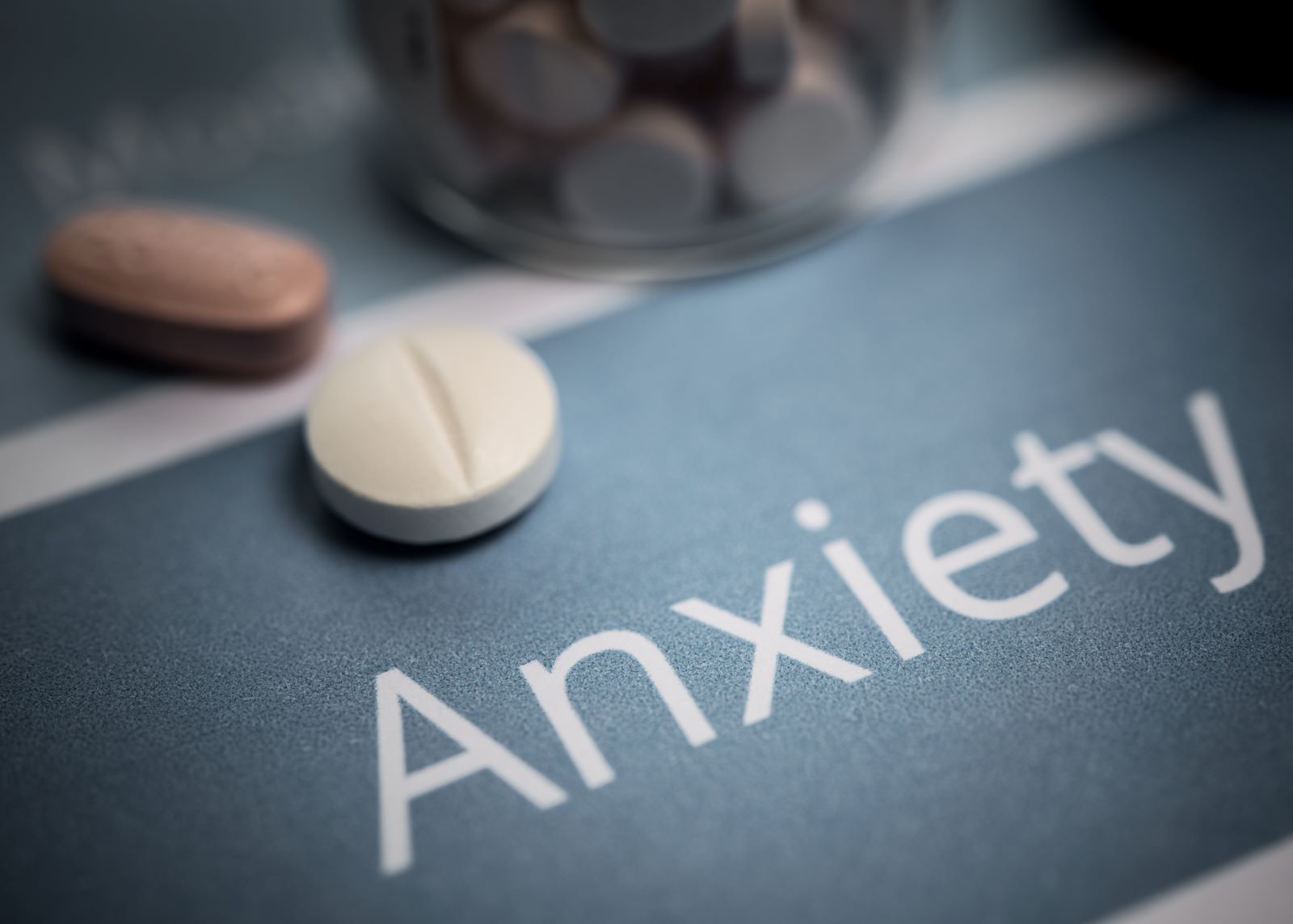Table of Contents
Anxiety disorders are a widespread mental health issue that can be challenging due to the overwhelming negative emotions they cause. Panic attacks, constant worry, and persistent fear can make daily life difficult, and many people turn to prescription medication for relief.
Xanax® and Ativan® are two well-known medications that fall under the benzodiazepine category, meaning that they calm the brain’s neurotransmitters. While these drugs help relieve anxiety symptoms, they have unique advantages and disadvantages to consider.
What is Xanax®?
Xanax® is an FDA-approved, prescribed sedative drug, also known as Alprazolam, used to treat anxiety disorders such as panic attacks and generalized anxiety disorder (GAD). Belonging to the class of drugs called benzodiazepines, it is one of the most widely prescribed medications in the United States.
Are you or a loved one struggling with addiction? Reach out for help!
Contact UsHow Does Xanax® Work?
Using Xanax® results in a calming effect by reducing muscle tension and slowing down breathing, ultimately depressing the central nervous system (CNS). It is worth noting that this effect is not directly caused by the drug but rather by an increase in neurotransmitter activity in the brain that causes feelings of relaxation and diminishes anxiety.
Xanax® is a medication that boosts the natural calming agent in our brain, also known as gamma-aminobutyric acid (GABA). By increasing levels of GABA, Xanax® can help reduce nerve activity and promote feelings of relaxation and tranquility. This can be particularly beneficial for individuals with anxiety disorders who are seeking relief from their symptoms and cannot manage feelings of anxiety on their own.
How is Xanax® Prescribed?
Doctors prescribe Xanax® under specific circumstances for individuals showing symptoms of anxiety and who have proven to have a legitimate need for anti-anxiety medication. The drug is approved to help treat generalized anxiety disorder (GAD), panic disorder, and seasonal affective disorder (SAD). While Xanax® on its own won’t cure these underlying issues, it is effective at helping to reduce symptoms and can help to support other effective treatment methods such as psychotherapy.
For short-term treatment of anxiety symptoms, Xanax® is usually initially prescribed in short doses of 0.25 to 0.5 milligrams three times a day. From there, depending on the individual’s response to dosages, a doctor may increase the dose every three to four days until a maximum amount of 4 milligrams per day.
What are the Side Effects of Xanax®?
It’s important that individuals check with their doctor about complications that can arise if using Xanax® alongside other medications.
Side effects of Xanax® can include but are not limited to:
- Dizziness
- Headaches
- Changes in Weight
- Nausea
- Joint Pain
- Dry Mouth
- Tiredness
- Changes in Sex Drive
- Difficulty Concentrating
- Constipation
- What is Ativan?
Ativan®, the brand name for Lorazepam, is another sedative drug used to help manage the symptom of anxiety. Like Xanax®, Ativan® also belongs to the Benzodiazepines and is designed to help reduce nervousness, fear, and discomfort.
How Does Ativan® Work?
Ativan® works the same way as Xanax® does, enhancing the effects of GABA in the brain and reducing neuronal activity to help promote relaxation, reduced muscle tension, and a general feeling of well-being.
How is Ativan® Prescribed?
Ativan® is prescribed in various settings, including hospitals, clinics, and private practices. The type of setting where a patient receives a prescription may affect the dosage, length of treatment, and monitoring requirements. For instance, a patient receiving Ativan® in a hospital for severe anxiety may require higher or more frequent dosages, while a patient receiving Ativan® in a primary care practice for occasional panic attacks may receive lower, infrequent dosages.
Usually, Ativan® dosage ranges from 1-10 mg, taken up to three times daily. This will depend on a patient’s condition, age and tolerance. While Ativan® is usually prescribed in tablet form, prior to surgery, it may be used in an IM injection form to help a patient sleep.
What are the Side Effects of Ativan®?
Ativan®, like other sedatives, can cause several side effects that range in severity depending on factors such as the amount of dosage and the individual’s unique reaction to the drug.
The most common side effects of Ativan® include the following:
- Drowsiness
- Dizziness
- Headache
- Memory Problems
- Weakness or Tiredness
- Dry mouth
- Muscle Weakness
- Blurred Vision
- Constipation
- Loss of appetite or an upset stomach
Which Drug Works Quicker: Ativan® vs. Xanax®?
When comparing the onset of action for Xanax® and Ativan®, the onset for both medications is a commonly debated topic. While Xanax® is often believed to be the quicker of the two, it’s important to note that this doesn’t necessarily make it the superior option.
The effectiveness of both drugs can vary between individuals, with some finding Ativan® to be the more effective choice and others swearing by Xanax®. It’s all about finding the medication that works best for you and your particular needs.
Xanax® is a short-acting benzodiazepine [1] and is often the go-to medication in emergency situations to help individuals quell panic attacks. It’s known for its rapid onset of action, taking effect usually within 30 minutes of ingestion, while some users may begin to feel the calming effects as soon as 15 minutes after taking it. The peak effects are usually experienced 1-2 hours after consumption, making it an effective and efficient option for those seeking relief from anxiety and panic symptoms.
Ativan® is another benzodiazepine drug that’s widely used to help ease anxiety and panic disorders. Unlike Xanax®, the onset of Ativan®’s calming effects is slower due to the extended-release [2], with most people feeling its effects within 1-2 hours of taking it. However, some users may start feeling more relaxed within just 15 to 30 minutes.
At its peak, Ativan®’s tranquilizing effects usually peak within the next 2-4 hours, and it can last for up to 12 hours, making it a popular choice for those who require long-lasting relief from anxiety symptoms.
What Are The Withdrawal Symptoms Of Xanax® And Ativan®?
Managing anxiety can be a challenge, and for many people, Xanax® and Ativan® are go-to prescription drugs. However, these medications also come with a serious concern: addiction. Over time, prolonged use of these drugs can lead to withdrawal symptoms during detox, which can be incredibly unpleasant or even dangerous.
Weaning off of Xanax® and Ativan® can bring on various withdrawal symptoms depending on the individual’s drug use history. These symptoms can include:
- Insomnia or disturbed sleep patterns
- Anxiety
- Agitation
- Restlessness
- Irritability
- Nausea
- Vomiting
- Loss of Appetite
- Indigestion
- Abdominal Cramps
- Muscle Pain
The process of quitting the excessive use of Xanax® or Ativan® can be a difficult and unpredictable journey. Depending on the amount and frequency of consumption, withdrawal symptoms can appear within hours of stopping and can last for up to two weeks.
It’s not just physical symptoms that one needs to worry about, as some people may experience long-term psychological symptoms such as depression and anxiety for months after quitting. It’s important to remember that each person’s recovery journey is unique and requires individualized support and care.
Get the Support and Guidance You Need
Prescribing medications such as Xanax® and Ativan® can offer a sense of relief to those grappling with anxiety, insomnia, and other related disorders. While properly using these drugs can manage symptoms, misusing them can result in serious side effects. If you are feeling uneasy about your consumption of Xanax® or Ativan®, it may be worthwhile to connect with an addiction treatment provider for medical guidance.
Recovery centers can lead you towards safely lowering your dosage and mitigating any potential withdrawal symptoms. With professional support on your side, you can take the necessary steps to review your potential treatment options and manage your medication usage effectively.
FAQs About Xanax® Vs. Ativan®
Below are some of the most frequently asked questions regarding these two medications.
Xanax® and Ativan® are two powerful medications that belong to the benzodiazepine family. While they are most commonly used to treat anxiety disorders, they are also effective in treating a range of other conditions, such as panic disorder, insomnia, alcohol withdrawal, and seizures. These medications work to slow down brain activity and promote relaxation, and they are only available by prescription.
Both members of the benzodiazepine family, these two medications may look alike, but the way they impact the body is slightly different. Their chemical makeups result in unique pharmacokinetic properties, like the timing of when they take effect, how long they last, and their strength.
It is generally not recommended to take Xanax® and Ativan® together, as they have similar effects and can increase the risk of side effects, including excessive sedation and respiratory depression. Always consult your healthcare provider before combining any type of medication to ensure there are no adverse drug interactions.
Yes, both Xanax® and Ativan® have the potential to cause dependence [3], particularly with long-term use or misuse. It is important to follow your healthcare provider’s instructions and use these medications as prescribed.
[1] Tobin, G., Tripp, J. NCBI. (2022, May 1). Alprazolam. Retrieved from https://www.ncbi.nlm.nih.gov/books/NBK538165/ on 2023, April 7.
[2] Noman, G., Rakesh, K., Bhansali, Raman, M. NCBI. (2023, January 1). Lorazepam. Retrieved from https://www.ncbi.nlm.nih.gov/books/NBK532890/ on 2023, April 7.
[3] Brett, J., Murnion, B. NCBI. (2015, October 1). Management of benzodiazepine misuse and dependence. Retrieved from https://www.ncbi.nlm.nih.gov/pmc/articles/PMC4657308/ on 2023, April 7.


















